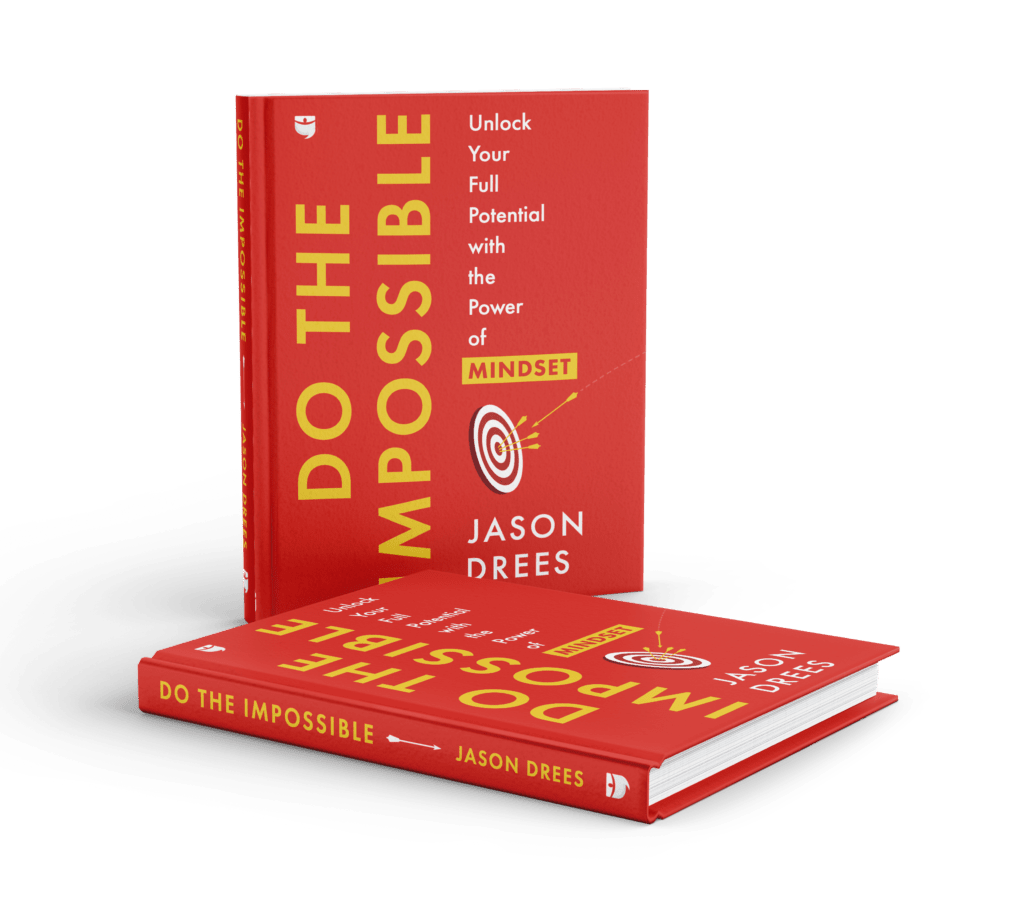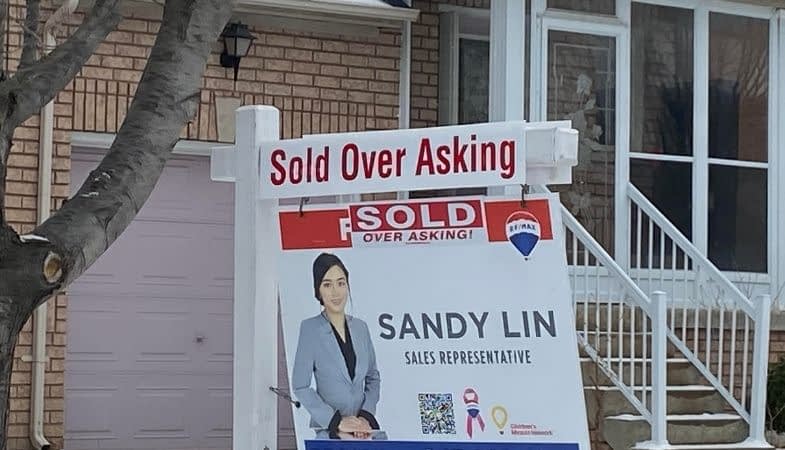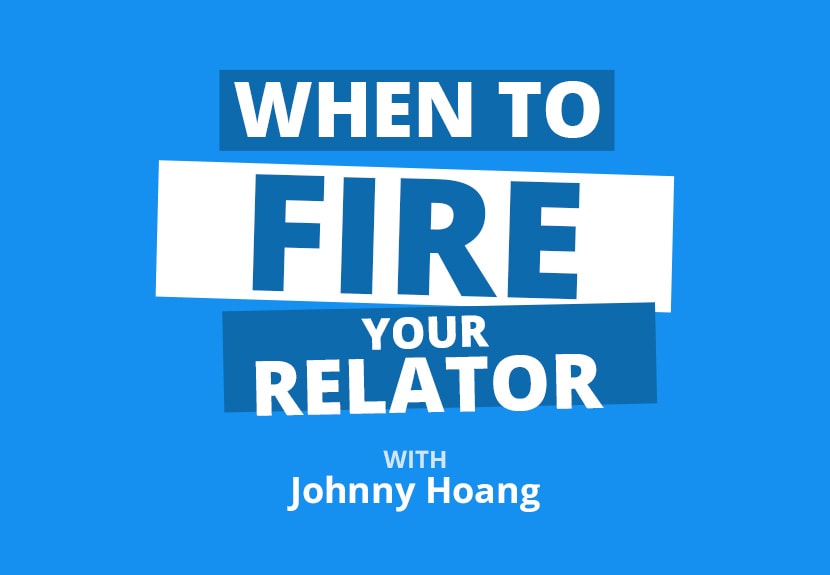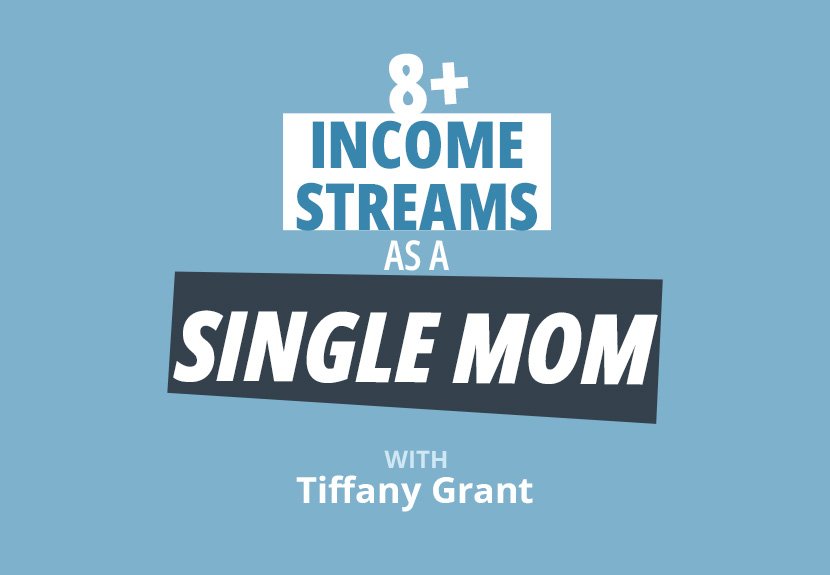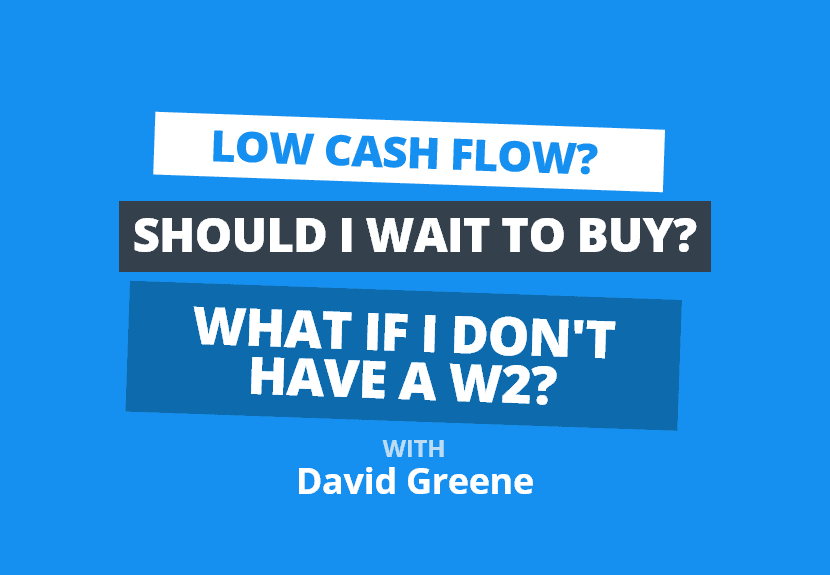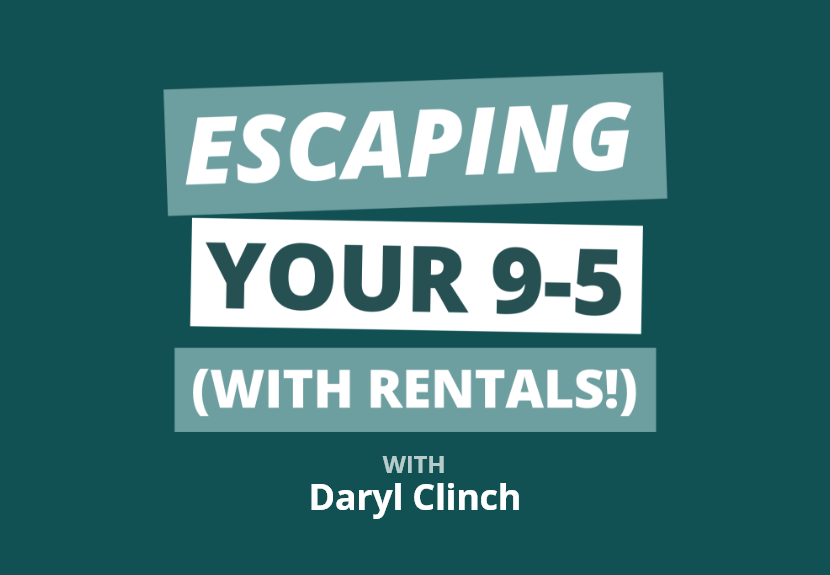She was making good money, she enjoyed her job, and she was saving almost all of her income. Tiffany knew that her real dream was to own her own business, grow her wealth, and build the life she dreamt of. So, thanks to her smart money management, Tiffany was able to leave corporate, build over eight streams of income with one business, and regain control of her time. If you’re looking to do the same, then definitely don’t skip out on what Tiffany teaches in today’s episode.
Mindy:
Welcome to the BiggerPockets Money podcast show number 283, where we interviewed Tiffany Grant from Money Talk with Tiff and talk about entrepreneurship, keeping expenses low, and leaving Corporate America to follow your dreams.
Tiffany:
I’m going to just go ahead and do it, see what happens. If I mess up, I’ll learn from that mistake, and then I take that lesson, and then I move on to the other thing. So I think that’s a big contributing factor is I’m so willing to take any risk, any risk, as long as it’s feasible, and as long as what I perceive to be the risk/reward is worth it, I’ll do it.
Mindy:
Hello, hello, hello. My name is Mindy Jensen, and with me as always is my always knows just what to say cohost, Scott Trench.
Scott:
Mindy, I’m at a loss for words.
Mindy:
You’re my favorite. Scott and I are here to make financial independence less scary, less just for somebody else, to introduce you to every money story because we truly believe financial freedom is attainable for everyone no matter when or where you’re starting.
Scott:
That’s right. Whether you want to retire early and travel the world, go on to make big time investments in assets like real estate, start your own business or leave Corporate America three times, we’ll help you reach your financial goals and get money out of the way so you can launch yourself towards those dreams.
Mindy:
Scott, I first met Tiffany a hundred years ago, and I’m so excited to finally be able to connect with her and bring her on this show. I love her story because it doesn’t start out perfect. She has always had an entrepreneur real streak in her bones, and then life happened. I love her quote a little bit later in the show. She says, “Life doesn’t happen to me. Life happens for me,” but life throw you a couple of curve balls, and instead of saying, “Well, I guess this is just how it is,” she didn’t stop from her dreams, and she continued on, and now she is an entrepreneur, a successful entrepreneur, self-employed, and living the dream.
Scott:
That’s right. She’s like Chuck Norris. No, I really appreciated her story. I thought it was-
Mindy:
How is she like Chuck Norris?
Scott:
“Life doesn’t happen to me. I happen to life.”
Mindy:
Oh, okay.
Scott:
I think she has a great story. I think the entrepreneurial spirit is there, and I think that the theme here is that she’s able to keep her expenses so low that it opened up a tremendous amount of options for her in of I think a number of circumstances that were a barrier to building wealth for Tiffany. So I think it’s a great episode and look forward to hearing from her.
Mindy:
Tiffany Grant from Money Talk with Tiff, welcome to the BiggerPockets Money podcast. I am so excited. We have finally connected. We have been missing each other for years.
Tiffany:
Literally years.
Mindy:
Literally years. I met you at FinCon in Washington, DC, which was a hundred. It feels like it was a thousand years ago, doesn’t it? Because it was-
Tiffany:
Pre-COVID.
Mindy:
… pre-pandemic, and then just we’ve been locked down for two years. So I’m so excited you’re here. Welcome, welcome, welcome.
Tiffany:
Thank you so much for having me. I’m so excited to be on the show. Like you said, that’s been in the works for years. So I’m finally able to finally get on. I’m so happy to be here.
Mindy:
Well, let’s jump into it. Where does your journey with money begin?
Tiffany:
Ooh, where do I start? Okay. Let’s start with when I was little, right? So just a little background, nobody in my family is really good with money, but for some reason, I always had an interest in it. So when I was about five or six years old, I started my first business, and that business was, I called it Tiffany’s Café, and I would go to my grandma, ask her what she was cooking for dinner that night, go and type up a menu, and then I would hand it out at dinner and take people’s orders, and it was like chicken was 25 cent, rice was 10 cent, big numbers for little kids. I would take the order back to my grandma, she would make the plate, I would bring it out, and then at the end, I would come around my piggy bank and collect my money.
So that was my first experience that I remember when it came to money, and then from that point on, I always had some type of business throughout the year. So seventh grade, my hustle was buying and selling books on Amazon because I love to read. So I was like, “Oh, well, how can I make sure I have a never ending flow of books? I can buy and sell on Amazon.” So I would buy them and then I would sell them back used, and then I would use that money to invest into the next book, and so on and so forth.
Then when I was 16, I remember having a business doing cheesecakes. I would make cheesecakes. At that time, I was working at CVS. So I would bring my little cheesecake samples. I don’t know if this was legal or not, but my manager said it was fine so we’re good. I would bring my little cheesecake samples and have the customer sample and they would order my cheesecakes. So that was my business at that time.
So I’ve always had something going on as it relates to money. Then I also remember being little and cutting out coupons. I mean, nobody used the coupons, but I just liked going through the motions of cutting them out.
Now, as we fast forward, I found out I was pregnant at 17. My trajectory at that point, I wanted to be a chef. I got accepted into culinary school, and then a week later, I found out I was pregnant. So I was like, “Okay. I can’t go all the way to Charlotte to culinary school because that’s too far. I won’t have a support system.” So I decided to enroll in a community college and start my career in business. Now-
Scott:
Where was this again?
Tiffany:
This is in Greensboro, North Carolina.
Scott:
Greensboro, North Carolina.
Tiffany:
That’s where I currently reside. So I ended up getting enrolled into community college because it was too late to apply anywhere else. One of the things the lady said, she was like, “What are you doing here?” She was like, “Your GPA is so good. Why are you here?” I told her the situation. She was like, “Well, I commend you for actually still following through.”
So at that point, I was like, “Okay. I have a little person that’s going to depend on me for the rest of their life, and so I need to do better as an individual, as a person so that way, this person can grow up with a different experience than me.”
So it was at that moment where I became really serious with money. I mean, I was an extreme couponer at that age. I would go into the grocery store and come out with carts full for $20. My mom was just looking at me like, “What kind of child do I have?” but that was part of that story as well.
Then I guess where it really got serious was I realized that I had to have credit to get credit, which is so backwards, but that’s how it works. So I was like, “Okay. I have to get a credit card.” I went to my local bank where I had banked since I was 16. This was when I was 22 or so. At that time, I had two kids now.
So I was like, “Okay. I need to get a small credit card.” All I asked for was $200. I got denied, and the reason I got denied was because she said the stuff on my credit report, so I had medical bills on there. That was it, medical bills, and then she said I didn’t make enough.
Now, I was always told that medical bills didn’t matter. So that’s why I tell people now don’t listen to the lie because they do. I was denied $200 because of it. Then also, the point she made was I didn’t make enough money. So from that moment on, I felt so dejected and so just rejected. I was like, “I don’t believe I’m not worth giving $200 to.” Oh, go ahead.
Mindy:
How much did you make that they wouldn’t approve a $200 limit on a credit card?
Tiffany:
So at that time, I was working at a thrift store. So I was making maybe $10-$11 an hour or so. So maybe that’s why, but nevertheless, the lesson I learned was I didn’t make enough money and I needed to get that stuff off my credit report.
So from that moment on, that’s when I started taking everything very seriously. So I got a new job that made more money. So that was my wake up call, and then I also got all of the medical bills off. Now, when I went back, this is the funny part of the story, I actually got the same exact person that I had the previous year. Okay? So when I went to her office, I was like, “Dang! This is the same lady,” but I was like, “You know what? I want to say thank you to her because because of her, I was able to work on all of the steps needed in order to come back again.”
Scott:
Just going back a second before, because I want to hear how the same lady did it and I want to build the climax even more for that, but what was the new job that you got and how did you get rid of the medical debt?
Tiffany:
Yes. Ooh. So this is good. Okay. So by that time, I had graduated with my bachelor’s. So this is fast forwarding a year from that moment. I had graduated with my bachelor’s. I had got my first entry job as a receptionist. So at that time, I want to say I was making maybe $12 or $13 an hour. It still wasn’t super significant, but it was a little up from where I was.
Now, with the medical bills, here’s a tip that I tell people, I was ready and willing to pay whatever it is that they needed because according to my credit report, it said it was 2,000 something dollars worth. Okay? Now, that was comprised of a $4 here, a $20 here, just nickeling and diming. So I called and I was like, “Hey, I noticed that there are these charges on my credit report. I just wanted to inquire and get some information about it.” So I didn’t say I wanted to pay yet.
When I said that, the lady, I hear her type in, she’s looking in the system and she’s like, “I don’t see any of those with us.” She was like, “All I see that you owe us is $30.”
I said, “Are you sure because what’s showing on my credit report is XYZ.”
Now, she’s doing some more research and she’s like, “Yeah, I’m sure. All I’m showing is we don’t have that debt anymore. I just show that you owed $30 and that’s it.”
So of course in my head I’m like, “Please, take my card. Hurry up,” but I said, “Okay. You still have to be smart about this.” So I went back to the lady as we were discussing, I said, “Okay. If I pay this $30 today, will you be able to give me something in writing saying that the debt is paid in full?” and she assured me that she could. So then I was like, “Okay. Go ahead and take my money.”
So I gave her my card number, she did that, and then I was like, “Well, what do I do about all of these other ones that are on here that you all aren’t showing?” and she said to go ahead and dispute it.
I was like, “Okay. That’s fine.”
So I went and I disputed the rest, and they all fell off pretty much. So that’s why I tell people now don’t be afraid to talk to creditors. Just don’t say that you’re going to pay yet until you have all of the information because once you say that you’re going to pay, then that restarts the whole process if you’re waiting for the seven-year thing that sometimes people do. So don’t say that you’re going to pay, but just say, “Hey, I’m just inquiring to see what’s on there.” So that’s my tip with that. So hopefully that answered your question.
Scott:
No, absolutely. Yeah, and sometimes you can negotiate those, right? “Hey, I have $2,000. It’s four years old. Can I pay $400 and get this thing resolved?” Sometimes that type of scenario can play out depending on your circumstance. So always worth a call there. I love the advice to learn and inquire, but not commit until you are fully informed and have all the facts.
Tiffany:
Exactly.
Mindy:
Because I’m in this position because I’ve talked to other people about paying off their debt, you were very smart in saying, “Can you give me something in writing that the debt is paid in full?” Those are the things that you want to make sure you are following up on. Those bills could have been written off by the company. They could have been billed in error. They could have been paid by insurance. They could have been a lot of things. Whatever happened is whatever happened. Those circumstances aren’t what’s at issue here. What’s at issue is what they are saying you still owe. She’s showing you owe $30. “I want you to tell me that’s paid in full, but here’s my $30. I’m not going to try to negotiate $30 when you say that’s all I owe. Here you go. Here’s my 30 bucks. Let’s get this off my record,” but yeah. There’s a lot of things that are on credit reports that are incorrect.
I mean, people are putting this stuff in and they’re, “I’m doing this thing you can’t even see because my hand’s over here.” They’re doing these nine keys or is it 10 keys? I guess it’s 10 keys over here. You slip up, you hit a three instead of a two, and now all of a sudden it’s on your credit report instead of mine because it’s the wrong social security number or however that works. So there’s mistakes that are made, but you’re not going to know what’s on your credit report if you don’t look at it.
Tiffany:
Exactly. See, that’s the key, too. Look at your credit report. Become aware of what’s going on because unless you’re aware, you don’t really know how to fix anything. So that was part of my journey. I had to become aware of the situation, and what prompted that was the lady telling me that I had stuff on my credit report and I was like, “You know what? Let me go out there and look and see what’s going on.”
Then second, having those conversations is so important. A lot of people just shun the bill collectors, “Oh, the bill collector is calling. Let me not answer,” but a lot of times, you can work out deals like Scott was saying or sometimes they don’t even have the debt anymore, and you’ll never know until you have that conversation.
Mindy:
Yup, and even at the time of the medical bill, my daughter was born in the beginning of November, and all the bills started coming in right around Christmas and I’m like, “Oh, if I could just pay this over a couple of months, that would just ease things up a little bit. I could do it, but I don’t really want to.” So I called up the billing department of the hospital, I’m like, “Hey, I’m getting these bills. Is there any payment plan options?” Before I could even say, “Can I have two months to pay?” she’s like, “We can do 11 months. I can offer you 11 months right now. If you need more time, you have to talk to a different department.”
I’m like, “Oh, I’ll just take those 11 months,” and it was $1,100. I was going to do it over two months, but I was like, “I’ll pay $100 a month for a year for my kid. Sure. That’s fine.”
Scott:
Well, we have to come back, though. What did the lady say the second time for the credit card?
Mindy:
Yeah, yeah, yeah.
Tiffany:
Before we go back because I just want to hit on Mindy’s point really, really quick.
Mindy:
No. Okay. Okay.
Tiffany:
I know, cliffhanger. We’re going to cliffhanger the whole episode. No. Get people to listen. No, but with contacting hospitals and stuff, they have pools of money to where they can write … I’ve gotten hospital stuff for free at one point in my life because I wasn’t making that much. So I just had a phone call. They were like, “Oh, fill out this form for financial assistance,” and boom, I didn’t even have that bill anymore. So that goes back to the point of always reaching out.
Okay. I’m not going to let you all hang off the cliff any longer. Okay. So when I went back to the bank, I ended up getting the same lady. So I was like, “Do you remember me?”
She was like, “No,” which, I mean, I understand. I mean, I’m one of thousands of people she probably saw throughout the year. So she’s like, “No, I don’t.”
I was like, “Okay. So let me go ahead and get through the process first and then I’ll tell her after the fact.” So we go through the process. She asked me, “Well, how much would you like to apply for?”
Now, in my head I’m like, “Well, I know my credit score is 750 or something at this point.” So I’m like, “Let’s do $1,000.”
So she runs it. She’s like, “Oh, you’re approved,” this, that, and the other.
So I was like, “I just wanted to thank you.” So it wasn’t like, “Oh, you told me da, da, da.” It was more of gratitude. I was like, “I want to thank you for telling me last year that I was denied and that I didn’t make enough and then I had stuff on my credit report because it set me on the trajectory to where I am today, and now, I’m sitting in front of you asking for way more than I asked for before, and I’m getting approved. So I really wanted to thank you for the impact that you’ve had on my life.”
She was just like, “You’re welcome,” but it just felt good to actually give her gratitude for that. I’m glad that I had the same person and I was able to tell her how much of an impact she had on me because I know a lot of times bankers and stuff, they don’t get that type of stuff. They’re probably all day deny, deny, deny, approve, deny, deny. So to hear someone say, “Well, this is how you impacted my life,” I felt like that would have a big impact on her life.
Scott:
Yeah. Sounds like she was a true credit to your finance story here.
Mindy:
Oh, that was terrible.
Scott:
Well, great.
Tiffany:
Yes, yes, that was the pivotal moment. So anyway, going on from there, single mom of two boys for a very, very long time, I ended up, because I was working in HR, doing Money Talk with Tiff part-time. So every time I would go home, I would just start working on Money Talk with Tiff, and then I realized, “Tiffany, you spend more time and you have more fun doing this money stuff. Why don’t you just do this money stuff?” So I quit Corporate America in 2019, and I have not been back since.
Scott:
Let’s go through a buildup to your entrepreneurial journey because I think a lot of people want to recreate that to some degree. So what year did you get the $1,000 limit?
Tiffany:
That had to be 2015 maybe, maybe 2015.
Scott:
Okay. Great. So 2015, you’ve just rebuilt your financial position, eliminated the medical debt, and got $1,000 in credit limit. What happens to your personal finances over the next four years that sets you up to feel confident to leave your job and take on the entrepreneurial venture full-time?
Tiffany:
Gotcha. So actually, okay, so once I was able to get approved, before, okay. So after that, I also got a Capital One card, and I would only use those two cards for gas. So I would get gas, pay it off, get gas, pay it off, get gas, pay it off just so I can keep building that. Meanwhile, while I was building that, I went, okay, so I finished my undergrad. I actually went back to school to get my master’s. So just visualize for me real quick a single mom, two boys, I was working two jobs, and going to school full-time to get my master’s degree, but-
Scott:
So let’s walk through that. So this is 2016 that this is going on. You’re in the meat of this journey. How do you enable all that? How do you handle daycare? How are you handling your household budget? How much are you saving or going into debt to get the degree? What does that look like?
Tiffany:
Okay. So leading up to that point, I was literally, so when I was in my undergrad program, I was literally living from refund check to refund check, whether it was student loans or federal tax refunds, right? So when I would get my refund, I would pay my rent up as much as I could, and in my mind I’m like, “At least we’ll have a place to stay if nothing else,” this, that or the other.
Now, once I got the job in Corporate America doing the receptionist thing, I was able to get a promotion while I was at that job. So then I was making I want to say $14-$15 an hour. Then I realized, “Okay. I don’t know if administrative work is what I want to do anymore,” because all throughout undergrad I was like, “Ooh, I just want to be an executive assistant to some CEO or whatever,” but then when I got the bottom level of that, which was receptionist, I said, “Yeah, this is not the life for me.”
So I saw the HR person walking around and started asking her questions about HR and things like that. So she took me under her wing. She started teaching me things, telling me what resources to plug into, and then I was able to get my first HR role through a temp agency here locally, which I tell people all the time, if you’re looking for a career change or anything like that, definitely check out temp agencies because they have the jobs. They’re able to get your foot in the door even if you don’t have any experience as long as you fit their criteria of what they’re looking for. So I was able to get my first HR position, and then I think at that-
Scott:
What year is that?
Tiffany:
Oh, gosh, years. It wasn’t too long after … Let’s say 2016. Let’s say 2016.
Scott:
In 2016, you’re still getting your master’s degree.
Tiffany:
No. Okay. So I enrolled in my master’s fall of 2016. So I was already in the HR position once I enrolled for my master’s degree if that makes sense.
Scott:
Okay. Great. You’re working in the HR job and you’re enrolled in the master’s program. What is day-to-day life like and how much are you able to save on a regular basis in that situation?
Tiffany:
Well, luckily, luckily, I’m very, very frugal by nature as you can see when I said I was an extreme couponer from 16-17. So I’ve always been frugal and I’ve always ever since the whole catalyst moment with the getting credit and stuff, I started budgeting. Okay? So I’ve always had a budget and I’ve always been frugal. So even as my income was going up, I still live the exact same way, if that makes sense. So I didn’t allow the income creep to get to me. I would still live like I didn’t have any money because that’s just how I live in general.
So as I kept increasing my income, my expenses stayed pretty much the same. So I was able to have more and more of a gap of what was available to me. So that’s when I started saving more, investing more.
So in 2017, I bought my first house at 26 as a single mom of two boys, and then once I did that, 2018, I ended up getting my master’s degree. So then after that, I got a job that was paying significantly more than where I was, I mean, to the tune of maybe double, triple my salary. So at that moment, I was able to really start saving because I still lived the exact same. I still live the same today.
Scott:
So what were you saving before? You were obviously saving something previous to that higher paying job because you were able to buy a house before you even got it. What is your budget looking like? How are you financing your master’s degree during that period?
Tiffany:
Okay. So my master’s degree was all student loans. I didn’t pay any of that while I was in school. What I was paying some on while I was in my master’s degree program because see, here’s the thing, too. They give you the grace period. So when I enrolled in my master’s program, my undergraduate went into deferment since I was back in school again. So while that was in deferment, and those are subsidized loans, I went ahead and started paying those down while I was working at the staffing agency, which was my first HR role.
So what my budget looked like? I really don’t spend money. I know it sounds horrible, but I really hate spending money. Everything I wear is thrift store. My car, I mean, it’s a 2010 Mazda or something like that. I still have it to this day. I just live very, very plain and very frugal.
Also, I will say another thing that really helped was having the kids, getting the tax refund, and things like that, and so that would be able to bump my savings or bump my debt payoff up a little faster because I was always disciplined with those. I wouldn’t just go spend it on whatever. It always went to debt or went to savings. That’s it.
So that also helped as well, but I mean, what did my life look like? It was go to work, go to work, get the kids, come home, cook dinner, put them in the bed, work on Money Talk, and then when I was in school, it was Monday, Wednesday, Friday. It was go to school instead of getting the kids and going home. So the kids would go to my grandparents.
So luckily, I had a very good support system through all of this. I had family that helped me with the boys as far as watching them whenever needed. I would do Uber and Lyft a lot. So I would do Uber and Lyft, they would watch the boys. So I’ve always had other side hustles going on while I was working, too. So that always helps.
Scott:
Awesome. That’s a phenomenal hustle and lots of things going on there. It’s really exciting to see. Okay. So when you get the new job that’s paying two to three times more, what is that job and what happens next? How does that translate to the next milestones in your wealth journey?
Tiffany:
Yeah. So that was still in HR. At that point, I was an HR business partner. So that was a step below VP. So I moved very quickly up the corporate ladder in HR, which I loved HR. HR was awesome. It was just I love money more. So I worked my way up the corporate ladder and I love that job, don’t get me wrong, because I’m still a people person. I love people.
So as that was happening, I was still driving Uber and Lyft. So even though I was making a decent amount of money, I was still doing Uber and Lyft. I was still doing Money Talk with Tiff, bringing in some money from that. I was still making soap. I make soap occasionally. I know you all are like, “She does freaking everything,” but I was still making soap and selling soap.
So I always had some type of cashflow in addition to wherever I was working because I knew that my goal was to not work for someone forever. I’ve always had the mindset of an entrepreneur even from the story I told you when I was five. So I get bored very, very easily working for someone else. So I’m like, “Okay. How can I do this?”
So then something happened at that workplace and I said, “Okay. It’s time for me to go.” Luckily, what I had already did was I’ve already had the budget, already knew what my daily number was, what I needed to make for the month in order to cover all my bills, and then I broke that into daily. So at that point, it was like I think as long as I made $50 a day, I would be okay.
So I’m like, “$50 a day? I can do Uber and Lyft for two to three hours, and I’m done for the day.” So it started putting things into perspective. I’m like, “I’m sitting here for eight hours every day and I can just work for a good two to three hours and I’ll be all right.”
So I quit. I didn’t have anywhere to go. Everybody was always asking, “Well, where are you going next? What company are you going to?” You notice everybody’s question and I’m like, “Nowhere. I’m going to work for myself.” It was just so scary for other people. Other people were projecting their fears onto me. They were like, “But you have a house and you have two boys and you’re a single mom. How are you going do it?” but see, they don’t have the data that I have. They don’t know that my number is only $50. If I can make $50, I’m good. So I wasn’t scared. Everybody else was scared for me. So anyway, I ended up quitting that job, but that wasn’t the last time I left Corporate America. So that was back in … Go ahead.
Scott:
So let me ask you a couple more questions about that. So first, I think that’s phenomenal and that’s the power of keeping expenses so low. I think that everyone thinks, “Oh, driving income is the one that’s exponential here and that’s the lever that’s most important,” but there’s this paradox where if you can spend very little, you can take a risk on something that’s highly variable in income like starting a business, right? It’s much easier to breakeven on a business if you’re spending $1,500 a month or $50 a day than it is if you need to generate $10,000 a month, right.
There’s also completely different tax brackets that you’re in for those things that make it that much harder to go from $8,000 to $10,000, for example, in income versus going from $1,500 to $3,000 in income. So I think it’s super powerful. For those willing to do it, you just have so many more options and you’re likely to get way richer downstream, not just because you can save up more when you spend less, but because you can take opportunities like this and say, “You know what? I can go try this shot because my worst case scenario is I Uber for three hours a day to breakeven while I figure out my shot.” So I think that’s phenomenal, and I just love the very simple but powerful math there that most people are not going to act on, but that you did.
Then second, I want to know about your cash position when you left that job. Had you built up a meaningful cash reserve and was that an influence in your decision?
Tiffany:
Okay. So this is where I tell people this is the part where I went wrong in this part of my story. Okay. So when I quit, I was confident. I was like, “Yeah.” I think I had maybe a month or two worth of expenses saved up. So I was like, “Yeah, I’m good,” this, that, and the other.
Now, I was good for a little bit and then I was like, “It’s starting to get a little tight.” I said, “Oh, no.” So luckily, my old job that I had left before I had went to that one that was paying exponentially more, they called me because they needed someone because their payroll person was going on maternity leave. So they knew that I knew the systems, I knew everything.
Scott:
I should have saved my rent for the second part here. Oh, jeez.
Tiffany:
Well, we can always edit it.
Scott:
No, we’ll leave it.
Tiffany:
So they ended up calling me. Now, I’m newly free from Corporate America. So I’m like, “I don’t want to go back,” this, that, and the other, but I was like, “You know what, Tiffany? Wait a minute. Let’s think smart because this might be opportunity here. You’re starting to see it’s starting to get a little tight. This might be what you need to take it to the next level.”
So I said, “You know what? Let’s make a deal.” I said, “I will come back and help,” because mind you, now, this is a perfect position to be in because they need me at this point. Nobody else they hired to take her place for maternity leave was working out. Nobody could understand the system. So they’re like, “Tiffany knows her stuff. She did a really good job while she’s here,” and this is the perfect position you want to be in as someone that’s getting hired, right?
So I said, “Okay. Let’s make a deal.” I’m like, “I will come help run the payroll and stuff. I need this amount of money.” I’m not going to say how much, but I was like, “I need this amount, and once I’m done with payroll, I need to be off for the rest of the day. So don’t try to give me any filler work and all that stuff. If I’m done by 12, I’m out by 12 as long as I get my job done.”
So they pretty much hired me as an employee, but I was working similar to a contractor, and that was my terms. I wasn’t going to go back if I had to get back into that employee thing. So I went back to help them out, which was fine because I loved the company, anyway.
It’s funny. While I was there, I’m thinking that the payroll lady’s going to come back. She calls me and she’s like, “Oh, I think I’m going to stay home with the baby,” and this, that, and the other.
I said, “I see what happened here, the old bait and switch.”
So anyway, I ended up staying a little longer than I thought, but I didn’t want to leave them hanging so that was fine, and then also it allowed me to save up more money. So now I tell people, if you’re going to make the big exodus from Corporate America, make sure you have at least three to six months, maybe more on the six month end of things because that’s where I ended up getting once I quit the second time.
So I actually quit corporate twice, officially, but it was just interesting how it all worked out in that way, but being an entrepreneur is very, very hard, and it’s very, very variable income. So you should at least have three to six months’ worth of expenses saved up at the minimum because you never know how things are going to go.
Then I also tell people, make sure you have intrinsic motivation because it can get very, very hard at times, and you will feel like giving up a lot of the time, but if you have an intrinsic motivation, so something within you like, “This is why I do this. This is why I’m out here. This is why I’m doing what I’m doing,” then it helps you get past those hurdles because that happens to me often. I’m like, “Darn! I could just sit at a cushy HR job and just get the regular income coming in,” and then I’ll get a text from a client saying, “Oh, I just paid off XYZ,” or “I just got approved for a house,” and I’m like, “No. You know what, Tiffany? This is why you do what you do. So keep doing it.”
Scott:
Love it. Well, so okay. So when did you quit the second time? What year is it?
Tiffany:
That was 2019.
Scott:
2019, and what has happened to your business and your personal finance story since then?
Tiffany:
In 2019, I was actually working at a financial firm. Okay. So I was there at the place helping with their payroll stuff, and then I graduated with my MBA, and January of 2019, this financial firm locally, they were like … I reached out because I actually worked on their project when I was in my MBA program. They were our client and I was like, “You know what? I want to get into the financial field. I want to get some experience under my belt in finance, not just in HR.” So they hired me on. I think it was in January of that year.
So I was working at a firm and, of course, being that as a financial firm, if there’s any professional development opportunities related to finance, guess who was there? So that’s actually how I was able to go to FinCon in 2019. The company actually paid for my lodging and everything.
Unfortunately, not too long after that, I ended up quitting, but that’s another thing I tell people, too. Always ask. The worst they can say is no because I was going to something that was finance-related, my company was like, “Yeah, sure. Go ahead.” So I was able to go to FinCon as a result of opening my mouth and just asking for it at my employer.
Now, while I was sitting at that job, I was only working with millionaires because that’s all they service, and I was like, “Hmm,” and I was studying to get my CFP because that’s what they required, but I was just like, “Mm, I don’t know if this is the type of people that I want to help for the rest of my life. I love the money thing, I love the finance thing, but I really, really like helping people pay off debt and negative net worth, getting it positive, and improving credit scores, and all that type of stuff, and I’m not getting any of that here.” I got so tired of talking about estate planning and taxes.
So I was like, “You know what? I think I’m going to just quit and just do Money Talk,” but it gave me an opportunity to see what I really wanted to do when it came to the finance field. I realized that was not the niche for me, and then it actually helped me find what my niche is.
So I’m super grateful for the opportunity and they are awesome people over there. If you are a millionaire, definitely check them out because they know their stuff, but it was just not for me. So that’s what made the decision. That’s why I made the decision to quit there, but they still refer me business. If anybody comes to them and they don’t qualify or whatever, they’ll send them to me, that type of thing. So we still have a good working relationship.
Scott:
Okay. So this is the third quitting of a job, but not Corporate America. They’re not corporate, this company. So what time did you leave that job?
Tiffany:
That was 2019. So I left from helping out with the payroll thing. That was January 2019. I got this job January 2019. So I stayed a little extra on the other one.
Scott:
Okay. So at this point, you started going into your venture full-time at the end of 2019?
Tiffany:
Yes. So August 2019 was my last day in working for anybody else. So during that time, and here’s the funny part, Mindy. I know you don’t know this part of the story, but I had created my podcast a month before FinCon because I was like, “Okay. I want to be strategic. I want to make sure I have something so I could be like, ‘Oh, yeah. I’m a podcaster,’” that type of thing. So I had a good month under my belt just for the sole purpose of going to FinCon and advertising the podcast because I knew that was what I wanted to do, but I was like, “Darn! I could really use this opportunity to get more traction on it.”
So I created the podcast a month before FinCon. So while I was at FinCon, I was like, “Oh, yeah. I have a podcast. It’s Money Talk with Tiff. It’s Money Talk with Tiff.” So I was spreading the word and stuff.
Then from there, it has just been guests the entire time I’ve had my podcast. So I would say 90% of my episodes are guests now people just keep coming like, “Oh, I want to be interviewed. I want to be interviewed.” So that’s how that whole thing started, but when I quit from the financial firm, I was in a really dark place a little bit because I had just broke up with my boyfriend, I quit the financial firm. It was just a lot going on, but I still kept my wits about me. I still tried to do as much as I could as far as Money Talk was concerned, but it wasn’t until I would say January 2020, right before COVID, where I started really putting pedal to the metal. I had booked events in DC. I had booked events in California. People were getting me to speak. That was my year of travel.
Then of course, as you all know, March 2020, COVID hit. So I’m like, “No!” Right when I was finally getting traction on all of this, that’s what happened. So I couldn’t travel. All the speaking engagements that I had booked got canceled and all of that. So I was like, “Okay, Tiffany. You have to pivot again.”
So I started doing online events, doing more one-on-one coaching virtually. Then also, I started a business in 2020 as well, another business that got me through the whole COVID pandemic.
Mindy:
What’s the other business?
Tiffany:
We started a logistics company, which is expediting. So what that means is sprinter vans and box trucks. So they do over-the-road like the big trucks do, but you don’t need your CDL. So it was easy for us to keep getting drivers. We had a good pipeline for drivers and things like that. So we were able to keep rolling, and we actually expanded quite a bit in 2220.
So you know how most people were losing business and things like that, this was an industry that was taking off, especially because even with all the shutdowns and stuff, we were able to, when they gave you the little paper saying that you were okay to keep working or something like that, we were able to get those. So we were still rocking and rolling 2020-2021, but now, I’ve decided to refocus my attention back to Money Talk, but that was how we were able to get through the pandemic.
Mindy:
Okay. So how does Money Talk with Tiff make money?
Tiffany:
Ah, so many different ways.
Mindy:
Okay. Hold on, hold on. Before we jump into that, let’s look at that. You have always had multiple streams of income and now you’ve got your main company, your main focus of income, still has so many ways of generating income. What was it? I keep seeing this millionaires have at least seven streams of income or something. I keep seeing that phrase, and I don’t know where that came from. I’ve never seen the beginning statement of that. I’ve just seen people quoting that all the time, but Tiffany’s got 500,000 streams of income.
Tiffany:
I wish. I’m working on it, but as far as Money Talk is concerned, so I do speaking, I do corporate consulting. So one of the ways I work with corporations is since I do have an HR background and now I have the financial piece as well and I have certifications in both, I’ll go into corporations to teach their employees about their benefits or to do financial wellness workshops, seminars, whatever is needed because what I have learned when I was in HR and in Corporate America is that a lot of people come in with a lot of financial mess going on, and so they can’t be as productive as employees as they want to be because they’re constantly thinking about what’s going on on the outside.
So my position, and this is actually what I want to study because I do want to get my PhD, but the relation between financial wellness and where you are financially in your productivity in the workforce and therefore how fast you’re able to move up the corporate ladder.
I believe in my situation I was able to move up so quickly because I had my finances in order for the most part, but there’s a lot of people that think about like while they’re at work, they’re thinking about what bills need to be paid, what debt, what … Also, another reason why I think I moved up so quick is because I was giving myself raises, i.e., I was quitting and then I was going to new jobs.
Now, a lot of people are scared to do that because they’re like, “Okay. Well, I have my bills. I have this. How can I make these big drastic decisions when I have all this stuff going on?” So that’s my position when I go into corporations, helping them realize the impact of how financial wellness plays on their workplace and the productivity in the workplace.
So I do corporate consulting. I do one-on-one coaching. I was doing a mastermind group, but I backed away from that. I’m in the process of writing a book. I have courses. I do brand partnerships, link insertions on my website, ads on my website. There’s so many different ways that I make money as Money Talk with Tiff. So I really don’t diversify in the way where I have multiple businesses going because at one point I had six at the same time and it was just very, very hectic. So now, I have this one, but I’m able to do so many different things with it.
Mindy:
They’re all interrelated. I’m sure that a lot of this is you create one piece of content or one thing and then you can repurpose it and use it in many different ways and make money from it multiple different ways. Yeah. Oh.
Tiffany:
Absolutely. Absolutely.
Mindy:
I love it. I love it. I’m excited for you, Tiffany. This is just, I mean, it seems like your whole life, but this has been a very, this is a lot of success in a very short timeframe in the middle of a pandemic, too. I mean, we didn’t even talk about that.
Tiffany:
Yeah. See, that’s my thing, too. One of my beliefs is everything you’ve ever wanted is on the other side of fear, right? It’s one of my favorite quotes. So anytime I feel scared of something, it’s probably because I need to go ahead and dive in. So I attribute that to a lot of my success. I’m willing to take a lot of risks even when I’m like, “I don’t know. I don’t know.” I’m going to just go ahead and do it, see what happens. If I mess up, I’ll learn from that mistake and then I take that lesson and then I move on to the other thing.
So I think that’s a big contributing factor is I’m so willing to take any risk, any risk as long as it’s feasible, and as long as what I perceive to be the risk/reward is worth it, I’ll do it. So I think that has helped me tremendously in both my career, my business, everything in life. It’s just the ability to look fear in the face and just say, “Get out my way. I’m still moving on.”
Mindy:
You say you’re willing to take on risk, but you are doing it from a very conservative financial position. You have increased your income without increasing your spending so you are increasing your savings. You’re increasing the delta between what’s coming in and what’s going out, and that is really the biggest financial superpower you can have is to have so much more coming in than you are spending.
Tiffany:
Yeah. See, the thing is when I say I take risks, I take important risks and calculated risks. So for instance, with getting the job that was making double or triple, yeah, I could jump out the frying pan into the fire, which it ended up being the case, but I was like, “Let me go ahead head and make this move, make this transition, make the best of it, and if things don’t work out, I can just go drive Uber and Lyft,” that type of thing, but a lot of people don’t even get to that point.
So a lot of times we hold ourselves back from success because we’re just scared to take on risk or we’re scared to just do the thing that we’ve been thinking about. We just sit there and think about it for years and years and years and years, and then we never do it. So I have always lived my life to where I just do things, which, of course, like I said, it bites me in the butt sometimes, but I never look at it like … I always look at life like life happens for me, not to me. A lot of people say, “Oh, life is happening to me. Oh, woe is me,” whatever, whatever, but I believe that life happens for me.
So even if it’s a “bad decision”, there’s still a learning opportunity there. So that’s the key to how I live my life. Even though I could go through the most horrible things, it’s like, “Okay. What was I supposed to learn in this instance?” and then I don’t sit there and wallow in it. I just use that lesson onto the next venture, onto the next thing. So yeah.
Scott:
How do you invest personally?
Tiffany:
Okay. So investing. I will be honest. Most of my investing is tied up into my house, my real estate. That’s typically people’s biggest thing, but I also have, of course, retirement plans and things like that. I will say because I started investing in the stock market, so a retirement plan when I was 19, no, 18. It was 18, 19, somewhere up in there. Ever since then, now granted, I wish I would’ve kept that money around. I had to cash it out when I was 20 something, when I was going through that tough period, but I’ve always loved investing into the market. So of course, that’s a percentage. So I jotted down some numbers. I would say 50% real estate, probably 40 or so percent stocks, and then 10% bonds, somewhere along those lines because I do like to have, and of course within that-
Scott:
Most of your net worth is in your business.
Tiffany:
Well, that, too. Yes.
Scott:
So yeah. So that’s another huge investment there.
Tiffany:
See, that’s the thing. As an entrepreneur, it never clicks to me that this is a business. I have so much fun doing it and it’s just to me, it’s not work. So it’s not until people pointed out like, “Well, Tiffany, you have your … What about your …” I’m just like, “Oh, that’s right.”
Mindy:
I would be interested to see what your business is worth. I think your investment allocation will be very different once you can factor that in, but I mean, that’s a whole entire different show factoring in the business.
Tiffany:
Yeah, because I’m just over here thinking, “Now, I’m going to have to go back to my net worth and my financial plan and incorporate the business,” because I did not like that, and that’s a good point. So that might be something that I do after the show, actually, is start incorporating my business into there.
Scott:
Yeah. It’s interesting with folks like with your business where most of the businesses related to your name, and your image and likeness. So you have to be thoughtful about how you value it. It probably generates a lot of income for you, but it may not be a ton of value that you can put on your net worth statement from that. So something to think about. As time goes on, make sure that it’s about the bigger brand like BiggerPockets, right? BiggerPockets is not about Josh Dorkin, our founder. It’s about the business of helping people invest in real estate and learn how to build private wealth.
Tiffany:
That’s a good point because when I started this, I keep trying to get myself out of the mindset that this is a side hustle because I’ve had it as a side hustle for so long and now I’m like, “No, Tiffany. This is a business.” So recently, I had to start treating it like I wasn’t a corporation. When you’re working for someone, you get up, you go to work, and you’re at your desk until lunchtime, and then you’re at your desk for the rest of the day. As an entrepreneur, sometimes that’s hard because you look around your house and you’re like, “Oh, well, the dishes. Oh, well, the laundry. Oh, there’s the bed. Oh, let me go get something to eat,” and then you look up and then nothing gets done.
So I’ve recently had to start implementing, “Okay. From 8:00 to 5:00, this is what you’re doing, period. Don’t get distracted with what’s going on out there,” and then so on and so forth. So sometimes it doesn’t click because originally when I started Money Talk, it was just a blog. I was just blogging about my journey. So I never expected it to become a business, but now that it is, I need to step into that and actually own that.
Scott:
Is there anything else you want us to cover or dive probe into before we do our outro?
Tiffany:
No. That’s all, I think. I think I gave you all enough of my life. No, I’m just kidding.
Scott:
I think it’s been a great show. So thank you very much. It’s been wonderful.
Tiffany:
Thank you. Thank you. Thank you.
Scott:
Great. Mindy, you want to take us to the outro?
Mindy:
I do. Okay. Tiffany, this has been super lot of fun, but we’re not done yet. We still have our famous four. Are you ready?
Tiffany:
Let’s go.
Mindy:
Okay. Tiffany, what is your favorite finance book?
Tiffany:
So I struggled with this question, but I want to say the most impactful to my life is Your Money or Your Life by Vicki Robin. That book has changed my entire outlook on how I view money. So that would be the one I would say, Your Money or Your Life.
Scott:
Classic. Wonderful. What was your biggest money mistake?
Tiffany:
Well, I went over a lot of them in this episode, but I would say quitting corporate the first time with not enough money saved up.
Scott:
Nice. Completely negating my rant in favor of that right after you said it. Perfect.
Tiffany:
But, but just make sure you have enough. Don’t just do it with one month. It’s not going to work probably, but anyway.
Mindy:
What is your best piece of advice for people who are just starting out?
Tiffany:
Budget. Budgeting is a lifesaver. I don’t care if you don’t want to call it a budget because I know that triggers some people. Call it a cashflow statement. Call it a money manifestation, whatever you want to call it, but you need to know how your money’s flowing in and flowing out. Otherwise, any of this stuff that you heard me talk about in the podcast that you hear me talk about all the time would not be possible unless I knew how that money was flowing. That’s the only way to get to any other financial goal.
Scott:
What is your favorite joke to tell at parties?
Tiffany:
So believe it or not, I’m a very funny person, apparently, but I never tell jokes. Usually, I just say stuff and people start laughing. So I don’t have a favorite joke, honestly. No dad jokes, sorry.
Scott:
Oh, no.
Mindy:
No dad jokes?
Scott:
We’re going to look up at Dad Says Jokes, who is my favorite Instagram account at this point. Let’s see what he has to say today. I woke up this morning to find two birds sitting in the sun in our backyard eating ice cream. They were basking robins. That’s fantastic.
Mindy:
That’s terrible.
Tiffany:
So why are you looking for that? I’m so horrible with this stuff. Me and my friends, we were all on a call and we were just rambling out dad jokes. I had to Google all of mine and they weren’t even funny, and I was just like, “Dang! Missed the mark.”
Mindy:
This is from Cadence. So I am the troop cookie manager for our girl scout troop, and when I was picking up cookies, my friend Cadence, my new friend Cadence was standing there helping out with the cookie pickup and she said, “Why do fathers always bring an extra pair of socks when golfing? In case they get a hole in one.” So that’s from my friend Cadence.
Scott:
Oh, fantastic.
Tiffany:
I’m just here for the …
Mindy:
Did you know the dogs can’t operate an MRI machine? The CAT scan.
Scott:
Oh, nice.
Tiffany:
Oh, okay.
Mindy:
That was from Daphne’s homework.
Scott:
All right. Tiffany, where can people find out more about you?
Tiffany:
So you can find me at moneytalkwitht.com and all social media platforms, @MoneyTalkWithT, and also, check out the Money Talk with Tiff podcast. I’d love to have you over there.
Mindy:
Awesome. Tiffany. I’m so glad we were finally able to connect. This was a super fun show and I really appreciate you taking time to share your story with us. I really loved it.
Tiffany:
Yes. Thank you so much for having me. I had a ball. I hope you all did, too. Hopefully, my jokes made it through.
Scott:
They all landed perfectly. Thank you, Tiffany.
Tiffany:
All right. Thank you so much.
Mindy:
Okay. We’ll talk to you soon.
Tiffany:
Bye.
Mindy:
Okay. That was Tiffany Grant from Money Talk with Tiffany. Holy cow! I love her story, Scott. I love her spirit. I love her smile. Wow. She never stopped smiling that whole time even when she was talking about some of the less exciting things that have happened in her life. She just doesn’t seem to allow anything to sway her from her goals. I really love her spirit.
Scott:
Yeah. I think her attitude and her ability to maintain, to stay grounded and keep her expenses low even as her income was rising is obviously a huge theme in her success and a theme we hear consistently across many guests on this show. Then I think her attitude as well and willingness to take risks and pursue her dreams and get clear on what she wants and do what she likes day-to-day I think are all huge tailwinds behind her. So I think her career as an entrepreneur is just getting started and the sky’s the limit for her.
Mindy:
I could not agree more. She is going to continue to crush it. Again, the number one superpower that she has financially is her ability to keep her expenses low. She doesn’t seem to feel like that’s a hardship. It seems like that’s just the way it is. She’s not feeling the pinch. I identify with her. As she’s telling her story over and over again I’m like, “Yeah. There’s a lot of things that you do that I do, too,” and I just completely identify with that. I don’t spend a lot of money as you can see if you’re following along with my budget, www.biggerpockets.com/mindysbudget, where I am completely screwing up every single month. So far, two months in a row blowing it, but I am still trying to stay within my budget.
Somebody said, “Oh, I think your budget was too tight to begin with.”
I’m like, “Oh, no, no, no, no. I could tighten that way up. I could tighten that so much more if I really chose to.” I don’t think it’s too tight. I want to live within this budget. I don’t think it’s a hardship and I think that Tiffany is the same way. It’s not too hard. She’s just conscious of it, and being conscious of what you’re spending and spending on things that matter is so important and it’s allowed her to live her dreams, and that’s what it’s all about, right?
Scott:
Absolutely.
Mindy:
Should we get out of here, Scott?
Scott:
Let’s do it.
Mindy:
From episode 283 of the BiggerPockets Money podcast, he is Scott Trench and I am Mindy Jensen saying, “Let’s jam, Sam.”
